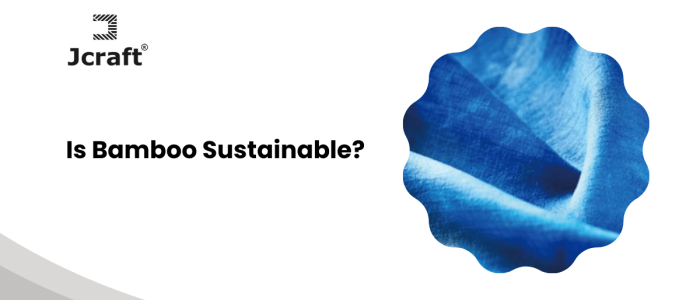Is Bamboo Sustainable?

Bamboo is the world's fastest-growing plant and one of the most environmentally friendly options available. Most bamboo grown in different parts of the world is environmentally beneficial because it doesn't need a lot of water or pesticides. Bamboo cloth is currently the most fashionable eco-friendly fabric option in the apparel industry. How eco-friendly bamboo fabric actually is, however, is a matter of some debate.
Bamboo Plantation and Its Ecological Effect
Growth of up to four feet per day is normal for a thriving bamboo plant. In addition, a bamboo plant produces 35% more oxygen than a tree of the same height and width. Since bamboo grows so rapidly, it reaches maturity in about seven years. Its extensive root system continually produces new shoots, so it can be left alone without replanting. It's useful for reducing erosion and enhancing soil quality.
As many as a thousand distinct species of bamboo are cultivated in various climates around the globe. For these reasons, cultivating bamboo is advocated as an environmentally sound practice. The eco-fashion industry has officially recognized bamboo cloth for its superior softness, fluidity, drape, etc.
Bamboo and Its Economical Effect
Bamboo is cheaper than both silk and cashmere, at least in terms of its retail price. As individuals become more conscientious of their impact on the environment, demand for bamboo clothing has increased. It is the latest eco-chic fabric that also serves practical purposes. There is logic behind the meteoric rise in popularity of bamboo textiles. Their texture is similar to that of silk, yet they are softer than cotton.
Clothing made from bamboo is also ideal for the summer because of its ability to wick away sweat. Drying time is cut in half compared to cotton. As a result, sales of bamboo home goods including sheets, towels, and rugs have increased. Bamboo cloth may not be as eco-friendly as it's made out to be.
Are clothes made from bamboo sustainable?
If grown properly, bamboo has the potential to be an extremely sustainable crop. Most bamboo fabrics on the market are a type of rayon, which requires a labor-intensive production process and uses toxic chemicals; however, there has been progress in recent years in how these chemicals are managed, which is encouraging. As long as the company is honest about where their bamboo fabric comes from, it's a good bet that they're using a more eco-friendly material than polyester or regular cotton.
Bamboo lyocell is probably superior, but it's more difficult to come by. Choose organic hemp and other low-impact textiles for some of your apparel. If you're concerned about your impact on the environment, however, going with organic cotton is the way to go, especially when it comes to the fabric dyeing process.
Most "bamboo" products on store shelves are actually rayon, produced with lots of chemicals and probably without any of the health benefits of the raw bamboo plant. It's also not possible for a fabric created from bamboo using the viscose rayon technique to be considered organic, as explained by Sewport. Companies who claim to sell organic bamboo rayon should be avoided at all costs.
But bamboo fabric has potential—it can be far less costly to produce than cotton, can avoid the substantial use of pesticides prevalent in non-organic cotton cultivation, and production can be far less chemically intensive than polyester. This danger can be reduced by shopping with brands that are ethical and open with their customers.
It's worth keeping an eye on because a lot of effort is being put into developing and making widely available cost-effective and environmentally-responsible means of producing the luxuriously smooth and silky bamboo fabrics of our dreams.
Conclusion
Given its botanical classification as a grass, bamboo has the potential to be the most environmentally benign resource on the planet. For best Bamboo Fabrics made with the most ecologically safe processes you can contact JCraftEco.
